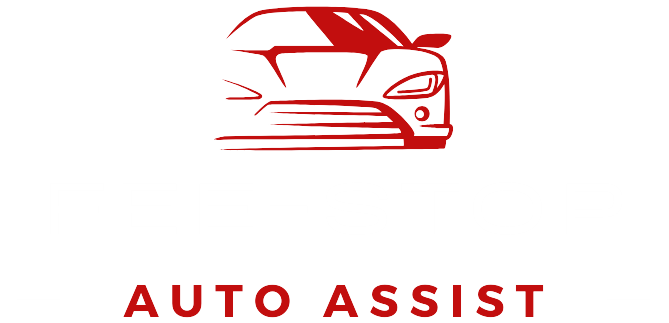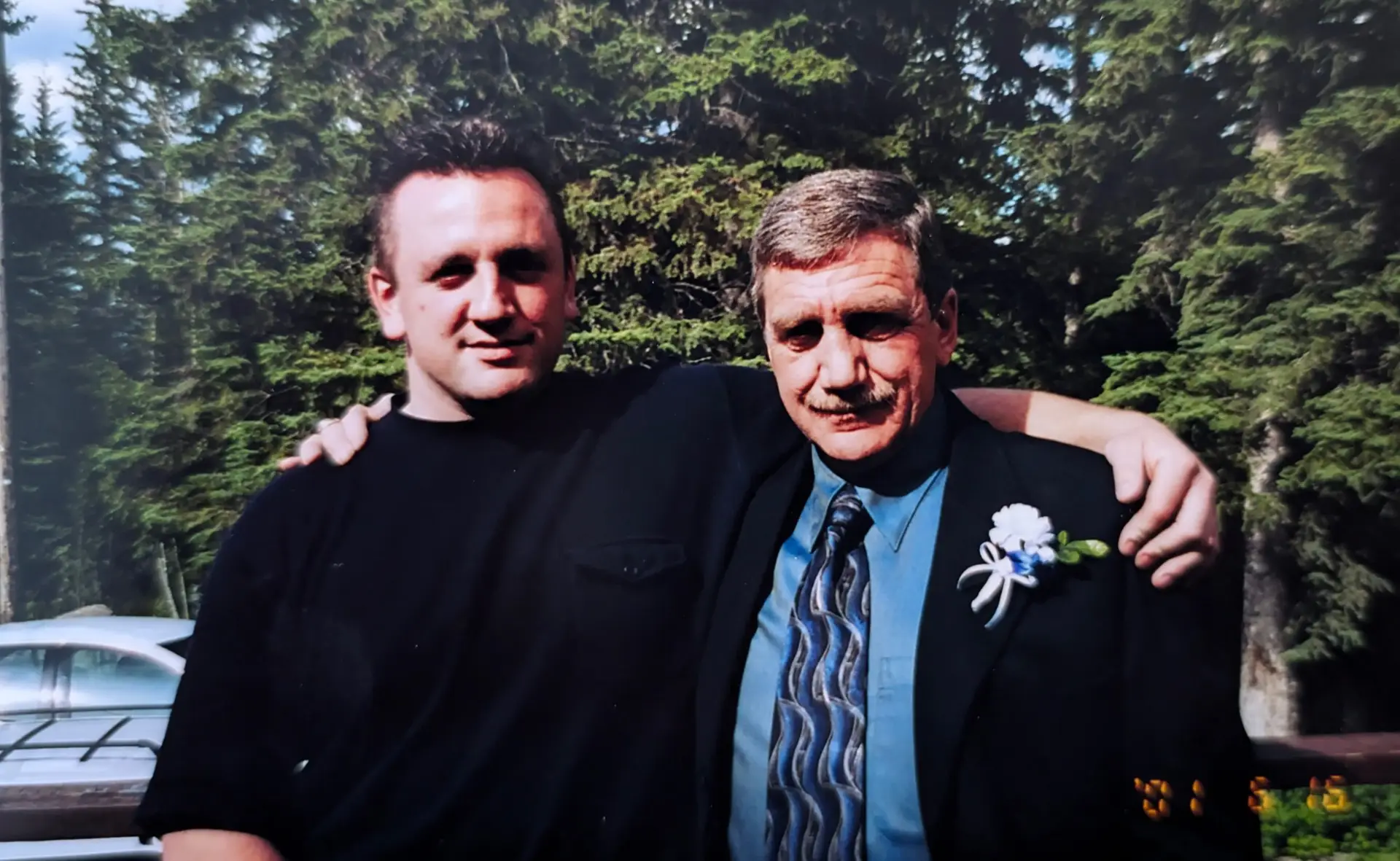Why I Started Fee-Stop Auto Assist: A Journey of Self-Discovery, Advocacy, and Resilience
Before diving into this deeply personal story of why I chose to start Fee-Stop Auto Assist, I want to preemptively address the negative self-talk that is consistent throughout. What I hope people take away from this is that I am resilient—not that I’ve ever felt hard done by or incapable. While I do envy many things about many people, I wouldn’t trade my busy brain for anyone else’s. Much of this story is about my life with undiagnosed ADHD (Combined Type) for 49 years. As I’ve reflected on the comments from teachers in my elementary school report cards and the critical feedback from parents and coaches, I’ve come to realize how amusingly obvious my ADHD was, even though I didn’t understand it at the time. Those words shaped much of my internal dialogue, but they also led me to appreciate the strengths I refused to acknowledge for so long.
As Brené Brown once said, “I now see how owning our story and loving ourselves through that process is the bravest thing that we will ever do.”
“Impossible is Nothing” – Muhammad Ali
When I look back on my life, I realize that if I had believed in things being impossible, I would have stayed down the first dozen times I was knocked over. Some people make everything seem effortless, but I believe those who appear to succeed more than they fail are simply the ones who refuse to let failure slow them down. Nobody is 100% when it comes to figuring out how to accomplish things. Some people might have a knack for deciphering probability by watching others, some have spent countless hours preparing themselves for the moment, and some are “quick learners.” A quick learner, to me, is just someone who turns failures around faster than the average person.
Most people who know me well would probably say I am far from a quick learner. Time and time again, I’ve chosen the difficult way to do things. If something comes naturally to me, I quickly lose interest. Those who’ve known me most of my life would likely say I’ve found the laziest way to get “above average” results. It’s funny how our inner voice doesn’t always match the voices of those around us. As Publilius Syrus said, “It matters not what you are thought to be, but what you are.”
Rediscovering Myself Through Connection
One of the reasons I decided to get into sales was that it felt like a way to reconnect with people on a human level. After meeting my wife, Terri, I felt a connection to feelings from my past self. I had allowed myself to drift so far from the person I was familiar with in my youth, and with that came sadness and a sense of loss. It had been so long since I felt like I was doing things for myself. There was this inner voice that was hard on me, one that many people can likely relate to—the negative self-talk, the feelings of insecurity or doubt, and the constant feeling like we don’t deserve good things. This was how I felt for most of my adult life, like I was a failure, unworthy of any kind of success. Financial gain or titles that carry distinction have never been important to me. The only thing I felt confident in was my ability to self-sacrifice, largely because I never felt good enough to put my own needs first.
This is amusingly ironic because many people might call me selfish or apathetic. My life has been a story of obsession—hyperfocus on that obsession, eventual disinterest, and then a new obsession. I’ve always been in this cycle of finding an interest, diving into it with every part of my being, learning everything I can, and then parking it in my brain before moving on to the next shiny thing. It’s been a struggle to recognize that I do have strengths, but they seem to only be unlocked when it’s useful for solving problems for others.
Finding Purpose in the Everyday
For years, I was a garbage man, putting my body through absolute abuse every single day, and I loved it. I was outside, breathing the air, feeling the sun and the elements, and I was incredibly fit. But it always embarrassed me when people asked what I did for a living—not my lifelong friends, who knew me for who I was and not what job I had, but strangers. This kept me from pursuing relationships when I was in my 20s. That inner voice again—“nobody will ever understand me!” I think many people can relate to that inner feeling of always being misunderstood. Maybe that’s why we’re drawn to people who are the most raw, the ones who are transparent in their fragility. I love being around people who are honest about being imperfect because, if I know anything to be true, it’s that I am highly flawed.
What I loved about being a garbage man was that it allowed me to feel useful. I excelled at it, and I never felt like an imposter. As I said earlier, I’ve never been motivated by titles or financial gain—I’m driven by intrinsic values, desires, and the need to help others. Being an elite-level garbage man was like being one of the best athletes on a team. People respect you because you can work harder than them, battling through the mind games that allow others to quit when the pain gets too much.
There’s a natural balance that comes with being extremely self-critical—it allows you to accept abuse that others simply refuse to endure, whether because of their dignity or self-worth. When your inner voice is always critical and judgmental, you hold your worth at such a low value that you’re willing to sacrifice your needs for those of others. So, I stayed a garbage man for many years, only retraining to enter the nursing field when I was laid off while living in Kelowna.
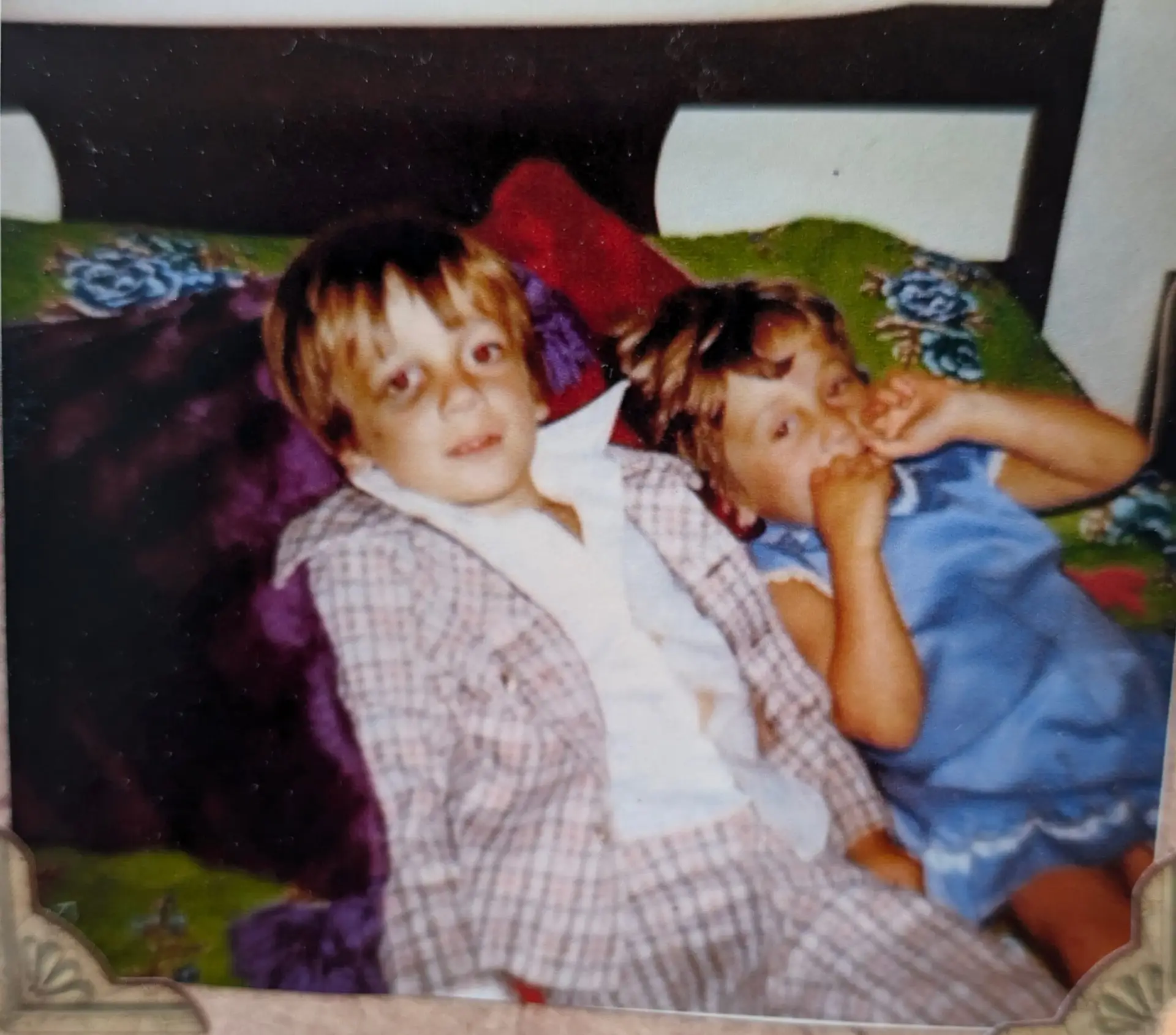
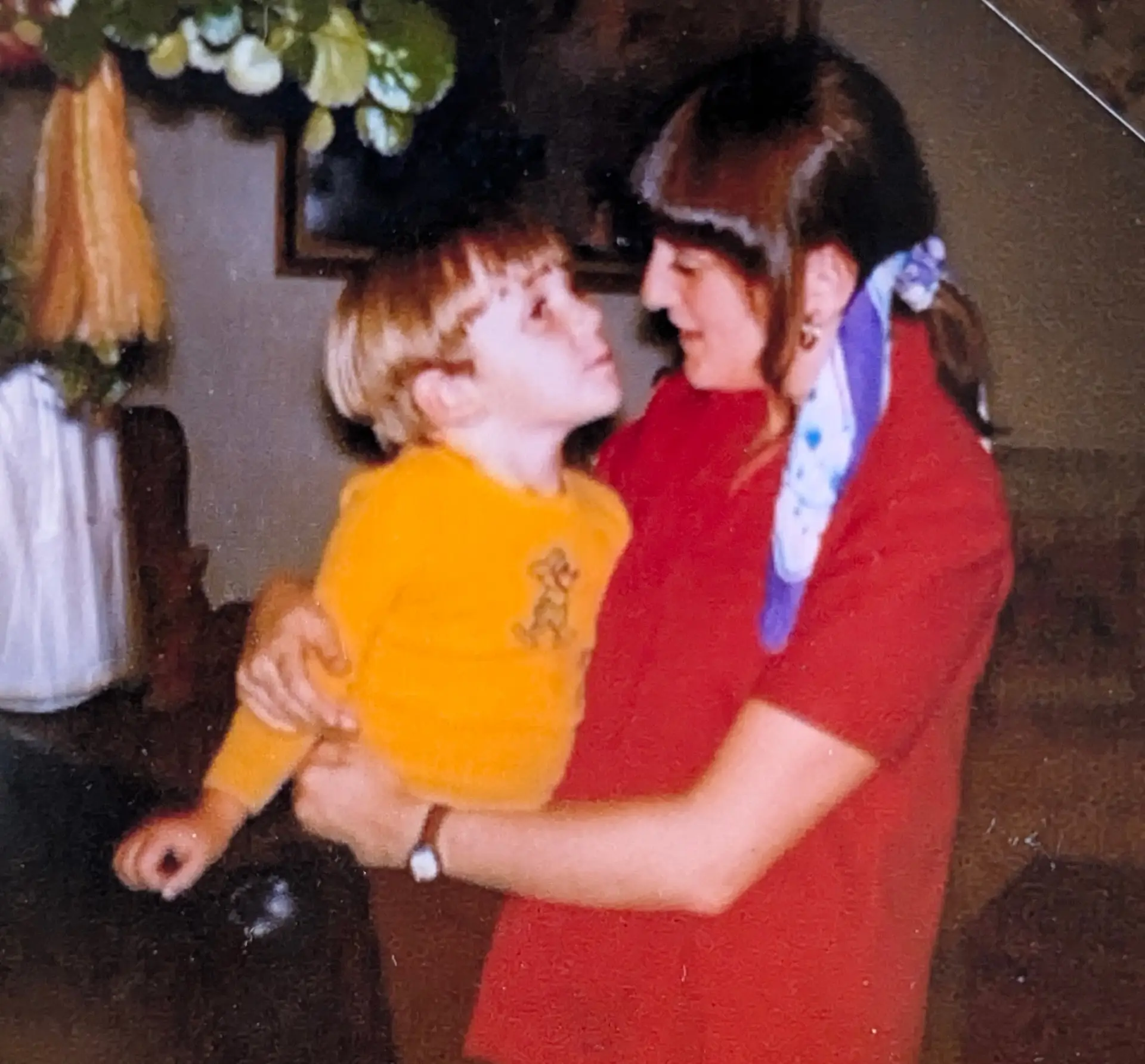
The Struggle to Reconnect
Shortly after ending my career as a residential driver in the waste industry, I began to feel a sense of apathy and discontent. I sought treatment for what I assumed was mild depression due to the loss of my job doing something I loved, but I could never find that chemical correction for the malaise. My mental health became more and more dysregulated over the years, eventually leading me to take a long, hard look at where I was in my life. The person looking back at me in the mirror was a stranger. I no longer recognized who I was now that I decided to do some reflecting.
It’s pretty depressing to be disconnected from the things you love, the people you love, the interests you love, and the internal motivations that keep your mind happy, only to wake up one day and realize you are lost. I knew I had never reached the heights others assumed I would. Many of my friends praised me for being bright, talented in athletics, or a natural leader, but the life I chose didn’t line up with the trajectory others had envisioned for me.
The Power of Reflection and Rediscovery
There wasn’t a great epiphany that turned my life around. It felt more like I had strayed so far from the person I used to be that I was terrified I had lost my way. I spent a year being single, not even considering looking for a relationship. When I stopped moving in the direction I had been, it allowed me time to build up the courage to turn around and see if I could find my way back to what was familiar.
Slowly, I began to find comfort in some of the things I used to love. Although I felt battered by the journey I’d taken over the previous twelve years, I started to remember some of the things I used to like about myself. My confidence grew as I felt my mind wake up—creativity and humor emerged from a long slumber. I was ready to open myself up to the possibility of meeting someone, still moving backward from where I had been a year earlier, but now recognizing more and more the hopes and dreams I had seemingly left idling.
Finding My Anchor in Terri
That’s when I met Terri, my current wife. Terri felt so familiar, like the person I had envisioned marrying when I was much younger. Someone kind, patient, brilliant, non-judgmental, organized, calm—a self-sacrificing mother who always did whatever she could to ensure her kids could pursue their dreams and passions. For whatever reason, she gave me her heart, and I finally allowed myself the grace to look deeper at where I was mentally and emotionally.
Terri offered me the support I needed to begin the work I had neglected to do on myself, to unlock and decipher the life I’ve led. There are no regrets with regards to my relationships and overall journey—I wouldn’t have had my kids, the experiences, and the people who have made life worth living for the last few decades, and I also wouldn’t have met Terri.
Life isn’t about where you were; it’s about getting to where you were meant to go. It’s only been through the things I’ve learned about myself in the last few years that I finally feel like I can truly anchor myself and get my bearings. It’s often when you feel the most vulnerable and broken that you open yourself to new possibilities, new answers, and new advice. If you feel like you have everything figured out, you are likely delusional, ignorant, or someone’s lap dog.
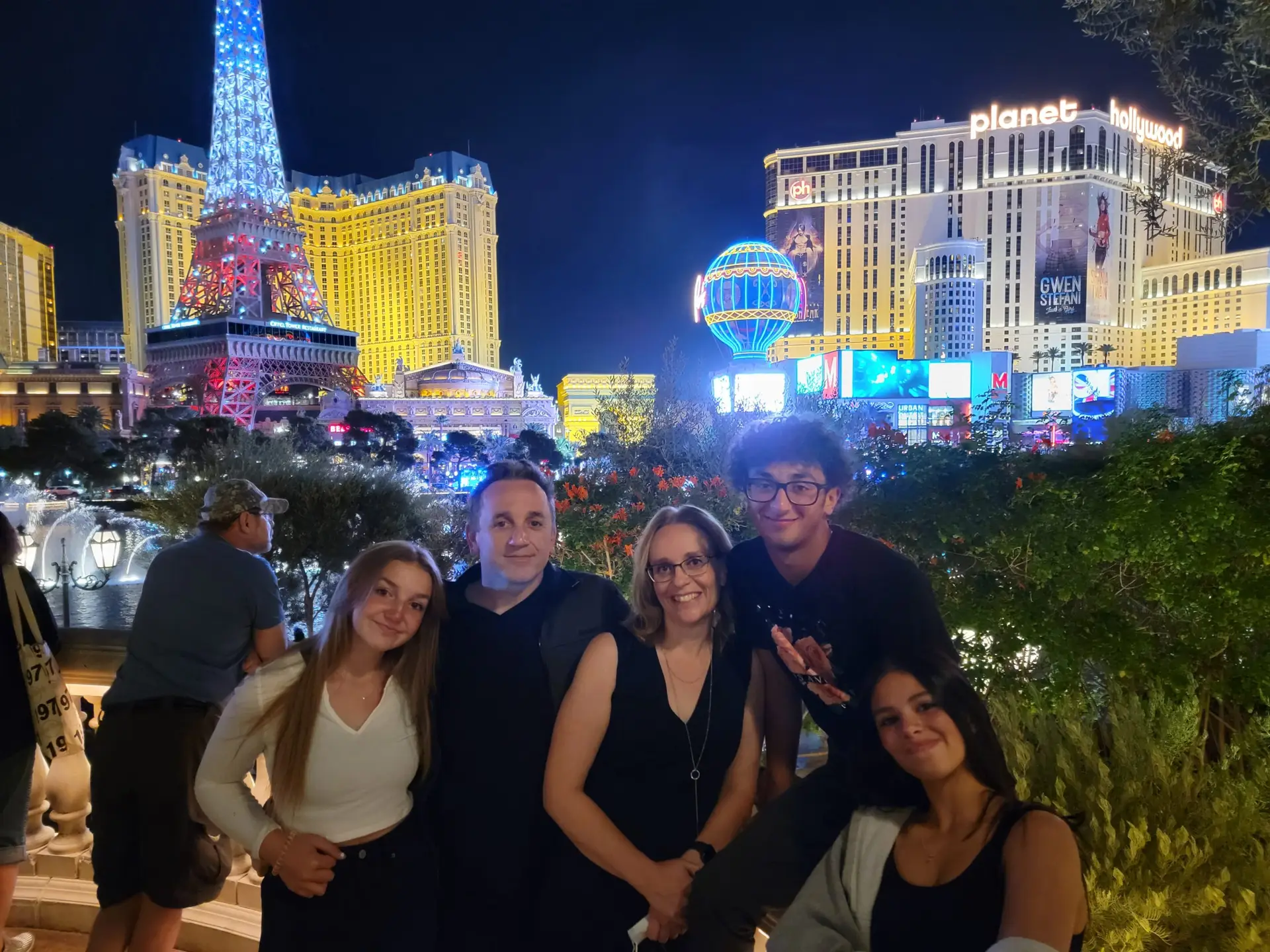
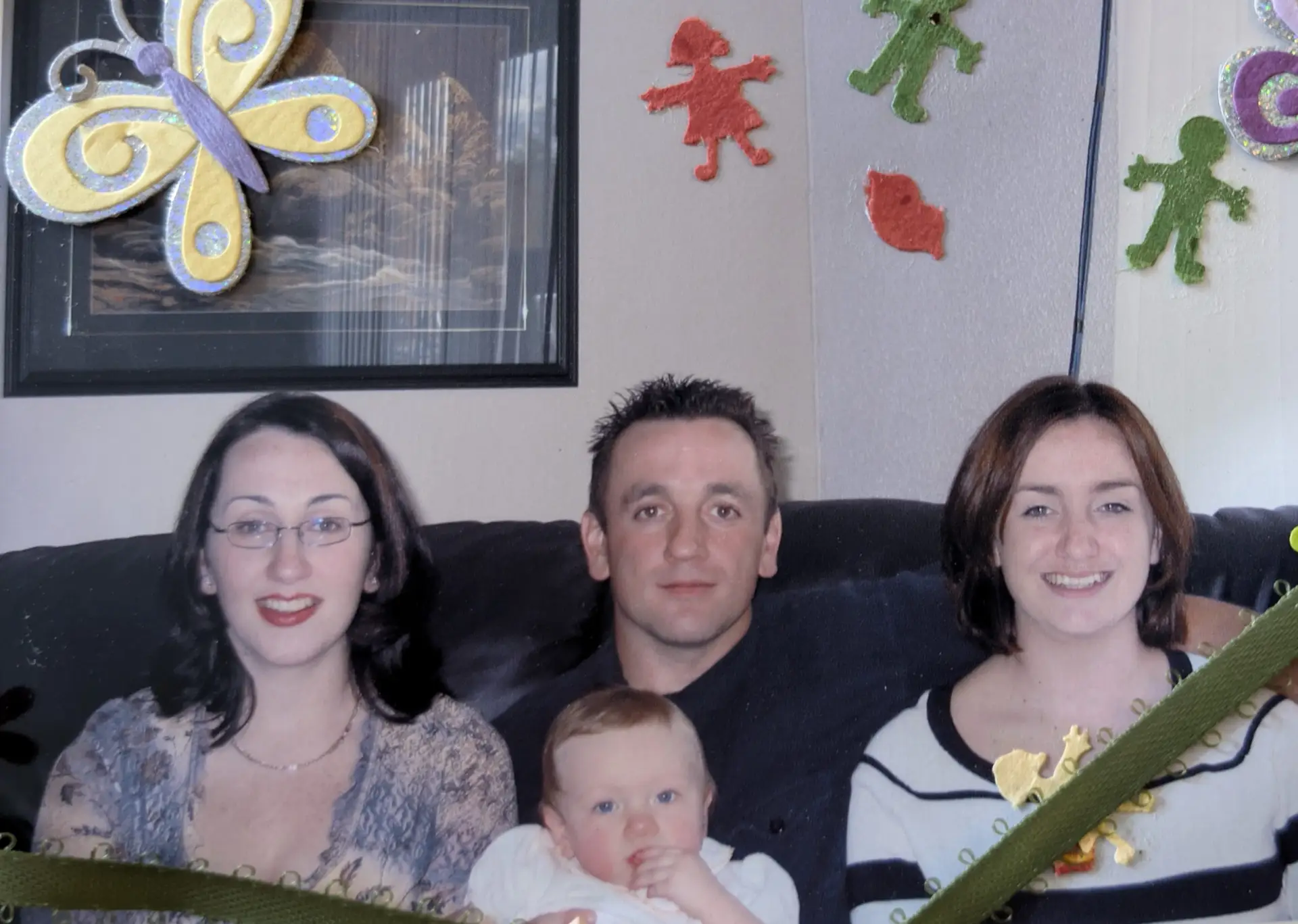
“The Bravest Thing We Will Ever Do” – Brené Brown
Although I want to know as much as I can about everything, I’ve realized that things fall out of my brain faster than they are onboarded. But spending time with Terri gave me the strength and motivation to figure out where I was broken so I could try to be better for her. I never doubted my ability to love, but I always had this glitch that made me incredibly selfish and forgetful. It’s something that was a sore spot from childhood—the lack of attention, the constant forgetting of important things, losing everything over and over again, the time-blindness that had me playing street hockey for an hour or two after I was supposed to be home for dinner.
There was this “thick skull” gene that seemingly divided a few million more times while I was forming. Growing up, I was told I was selfish, that I didn’t care for anyone but myself, that I refused to follow directions or pay attention to people when they were speaking. I was told I cut people off, that I was only interested in things that mattered to me, that I didn’t remember birthdays or special occasions, that I was unreliable, too emotional, obtuse, difficult, overly judgmental, and so on. When you grow up hearing this from parents, siblings, family, teachers, friends, co-workers, managers, children, and lovers, you can see why some of us develop a really destructive inner voice.
Although I know I am all those things I’ve been called, it doesn’t reconcile with how I feel inside, and that’s where the pain of always being misunderstood comes from.
Breaking the Cycle: Family and Addiction
I grew up with an alcoholic father, and I had an uncle who passed away from an overdose. I have cousins who suffered terrible abuse, which may have led to their drug addictions and eventual mental health collapses. These were some of the people I loved most, and it always hurt to think that they simply didn’t love someone enough to stop doing what they were doing to themselves. I remember thinking my dad obviously loved “the bottle” more than my mom and us kids. Seagrams 83 was my dad’s choice—Crown Royal was too expensive when you drink a “two-six” a day.
It wasn’t until my uncle passed away from an overdose that I heard someone talk about addiction from a place of compassion. During his funeral, the man who gave the eulogy talked about addiction as something you no longer have control over. People who are addicts will do anything to free themselves from being a slave to whatever is controlling them. He went on to say that this is why so many turn to religion, and it was exactly why the 12-Step Program had been successful for so many—people feel helpless and unable to take control. There is pain, isolation, sadness, embarrassment, and desperation when people have an addiction.
My little brain was taught rigidity from being raised in a religious home. I was conditioned to believe that any flaw we had was simply fixable through prayer, and if you kept making the mistake, you were obviously a bad person or so damaged that even God had turned their back on you. There were all these signs that something was wrong with me, or at least that was the belief. I was so conditioned to think I was bad or broken that I simply accepted that I didn’t deserve anything good in my life and that the only way for me to be of use in this world was to help others, no matter the cost to myself.
Discovering ADHD: A Moment of Clarity
This brings me back to where I needed to begin looking back so I could do the actual work of uncovering the truth. Was I simply a terrible human who was all those things I’d heard from people I loved and admired, or was there something wrong with my brain?
It wasn’t until I read The Myth of Normal by Dr. Gabor Maté that I ever heard what it was like to have ADHD. When he spoke about his own experiences—the weaknesses, the shopping addiction, the gifts in problem-solving, but the absolute ineptitude when it came to being interested in things that didn’t engage him—I recognized myself in his words. The piles that are synonymous with many who have ADHD as an organizational technique, the feeling of being misunderstood, the sense of never living up to potential, the desire to create through writing or art or some other abstract way to express what we can’t put into words—all of it hit home.
Hearing Dr. Maté speak about these things was like hearing someone express something I had never had words for. Of course, I read about a dozen more books on the subject, listened to dozens of hours of podcasts, and eventually got diagnosed. If it wasn’t for meeting Terri, I wouldn’t have had the confidence to look internally. My inside was a deep, bleak abyss of negative beliefs. If you’re terrified of confirming that you are catastrophically broken, that even God has turned His back on you, you likely don’t have the appetite to do much digging. Again, I cannot overstate the impact Terri has had on my life. It was her love and compassionate worldview that allowed me to find a place to tether myself.
For the first time since I was a small child, I began to see myself the way others do. While this is still inconsistent due to the lifelong traumas that often run in families with neurodiversity, Terri offered me a reprieve from my own hurricane of thoughts.

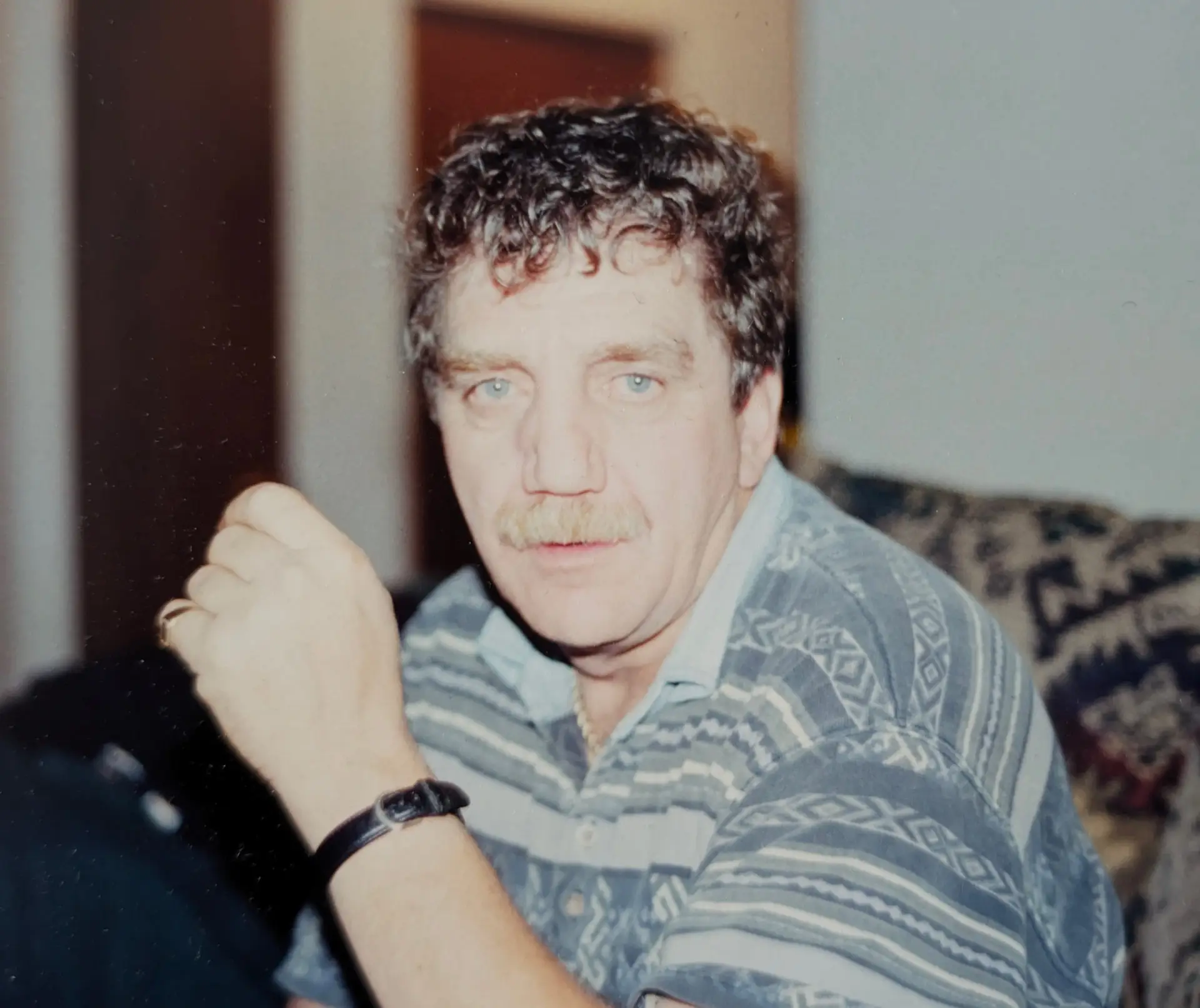
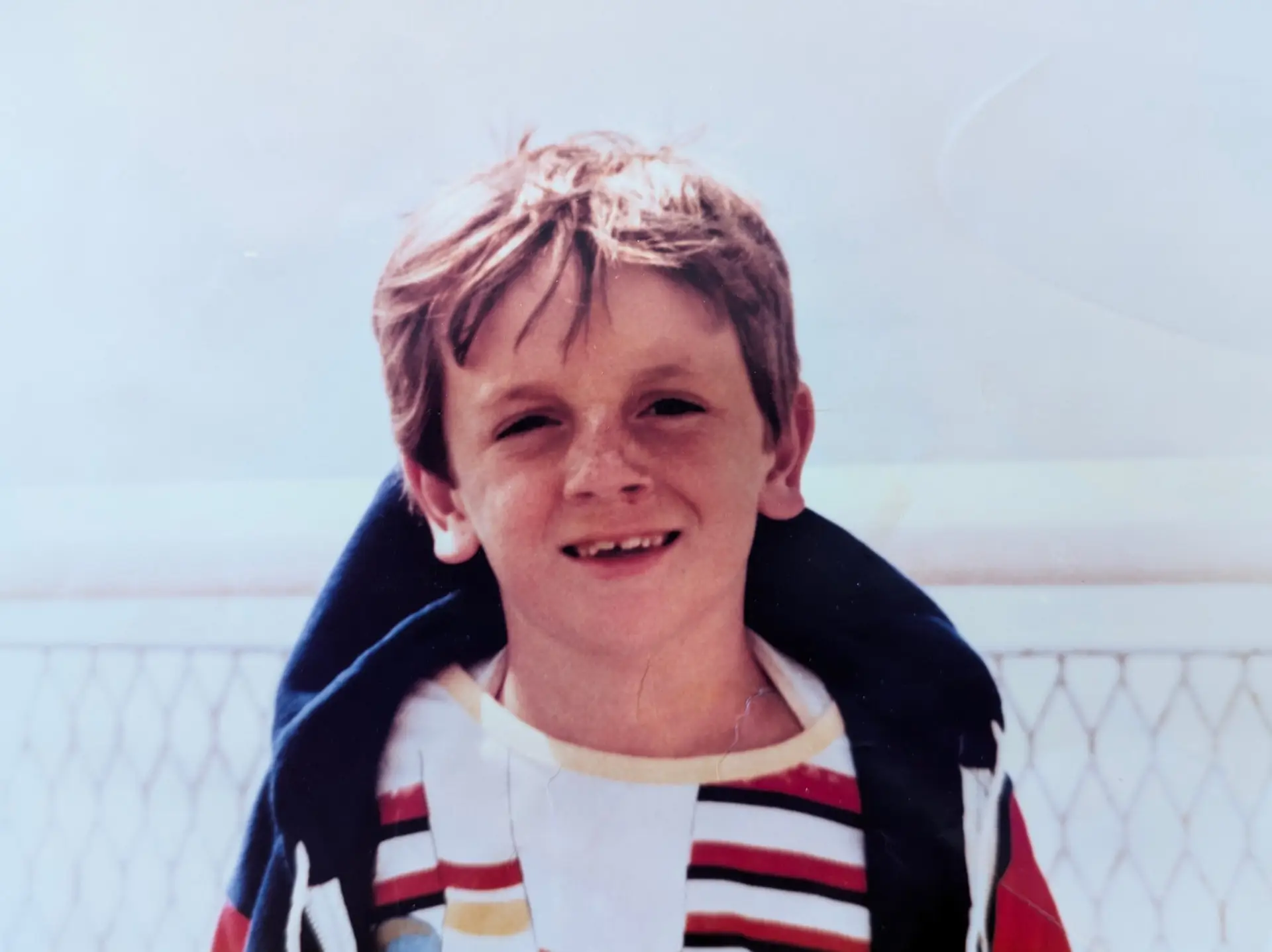
"I've Just Found 10,000 Ways That Won't Work" – Thomas Edison
Last year, at the age of 49, I overcame imposter syndrome and sought professional guidance. It was confirmed that I had undiagnosed ADHD. This new perspective on life moved me from an introspective view of having a character flaw, one that had been consistently validated through the inability to “pray away” my “sinful nature,” to one of compassion and understanding. This newfound outlook also allowed me to rethink my parents’ lives and struggles.
The first day I took Vyvanse, I wept for hours. Vyvanse increases dopamine and norepinephrine levels by blocking their reuptake into neurons. These neurotransmitters play key roles in regulating attention, focus, and impulse control, which are often impaired in individuals with ADHD. By boosting the availability of these neurotransmitters, Vyvanse enhances communication between neurons in the brain, leading to better focus, reduced impulsivity, and improved cognitive function.
I was driving a front-load garbage truck in St. Albert when I decided to give it a try. There was some hesitancy, and my overwhelming imposter syndrome had really amped up the volume: “What if you’re wrong? Maybe you just want this ADHD thing to be true because you’re looking for an excuse not to hate yourself for being so weak.”
I took the medication—30mg to start—and an hour later, I was sitting at the dock of a customer, waiting for them to roll the bin to the overhead door, and I simply began to cry. For me, it wasn’t so much the overwhelm of having my brain quiet enough to hold a thought; it was the memory of my father that broke me that day. As I mentioned earlier, my dad was a heavy alcoholic. He was the kindest, most patient man anyone could ask for in a dad—never petty or vindictive. He was really bright for a man who dropped out of school in grade eight after his abusive stepfather took him and his older brothers to work on the railroad in Mission, British Columbia.
My dad had reasons for his alcoholism—he had suffered and witnessed his family suffer. But what spoke loudest was the realization that his mind was too busy. All those terrible things I had been telling myself—the “character flaw”—were what my dad had suffered from his entire life. When I wept that day, I wept for my father because I knew that I was now able to do the one thing he had been trying to accomplish with alcohol—a quiet brain.
When I say I wept for hours, I mean it literally. I wept for about eight hours as I drove my garbage truck around that day. After a short time, I decided to reevaluate how I would attempt to finish off my life. There is no fixing the past—the lost potential is what it is—but I decided to take the empowerment of awareness and use whatever strengths I have to try and make a difference in my community.
Honoring My Niece Taylor: A Beacon of Strength
A large part of my motivation comes from my late niece, Taylor. She was born with a rare type of brain cancer and later passed away on Sunday, September 23, 2018, after a short battle with a different brain cancer that may have been due to her aggressive radiation treatments early in life. When she was born, I was living in Kelowna with my ex-wife and children. It was another reminder of my perceived selfishness that I moved away from my parents and sisters when my daughter was only five months old.
While my entire family, as well as a huge part of the northern Alberta community, fought and advocated for her, I had been disconnected and unhelpful during their time of need. I’ve never been as strong or unwavering as the women in my family—they are all warriors who make no excuses; they get things done! This is another trait I see in Terri, my “home.”
If a husband ever wants to be humbled, consider all the work the women in your life do that is unaccounted for. Knowing that I genuinely struggle with organization, time awareness, patience, emotional dysregulation, forming habits, and sticking to a routine, it’s been eye-opening to step back and appreciate all the things my wife does to keep our entire household in order.
As Nate Bargatze humorously put it, “I feel like in a marriage, one of you is a dreamer, you know, ‘Money’s not real, let’s have fun, let’s go do fun stuff as much as we can.’ And the other person hates fun. That’s how you make a marriage. You can’t have two dreamers; you’ll be homeless in an hour.”
Although this is meant to poke fun at the responsible person in a relationship, while being self-deprecating, it’s sort of what it must be like for the neurotypical person in a relationship. This is amplified in our household, as Terri’s children were also diagnosed with ADHD shortly after I was. There is no consolation for Terri in all this chaos—she is relied upon by every single person in her home, and to her, it is utter chaos.
I will never be able to “make it up to her” or offer her an “equal partnership” no matter my intentions. What I can offer her is my continued work on myself, so I can eventually offer her the best of me. This is the fuel I use to keep moving forward.
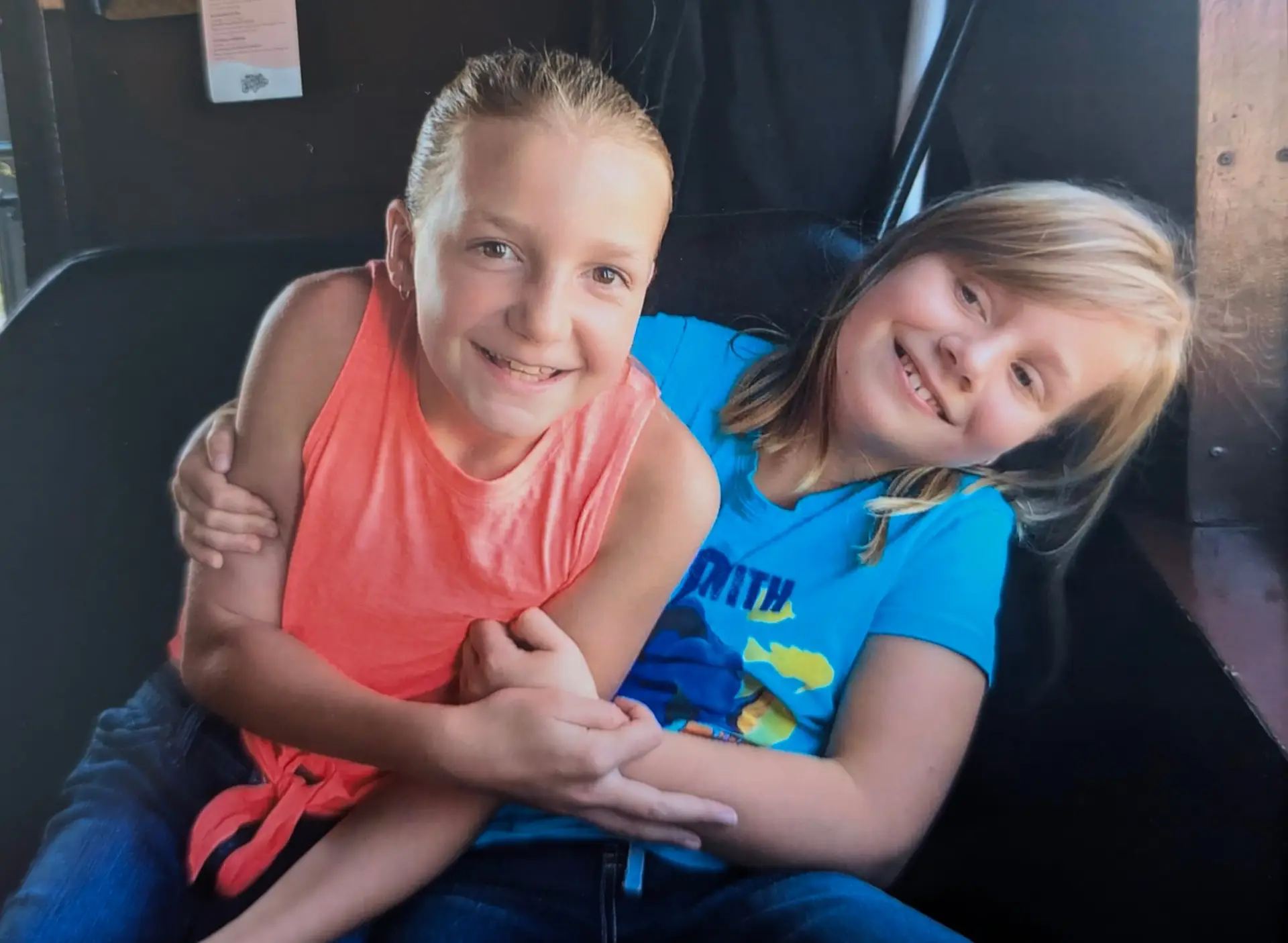
The Birth of Fee-Stop Auto Assist: A New Beginning
When I transitioned into sales, working at car dealerships, my brain was connecting all these dots, working on bringing people and companies together. If being a fantastic salesperson in a dealership setting was important to me, I believe I would have had to sacrifice some of the things I love about myself. It’s true that I am all the things people have said about me, but I am also deeply empathetic, self-sacrificing, passionate, resourceful, and have strong convictions when it comes to justice and advocacy for those who are vulnerable.
So after a few days of realizing how the dealerships were set up, I began to listen and learn as much as I could about the operational side of things. I knew I wasn’t going to be able to compromise my beliefs, to omit truths, or to tell untruths. If I was going to sell cars, it would be due to my transparency, my ability to connect with people on a human level, and not seeing them as my source of income.
Ever since I was a small child, I have always felt this need to protect people, to stand up for those who were being bullied or taken advantage of. Working in an environment that is often “less is more” when it comes to information that the salesperson has access to, was counter to every perceived strength I had. My brain lights up when it comes to learning information. I also have come to realize I likely have a dueling form of neurodiversity with autism being present as well. This would explain the battle I have with being so comfortable with disorganization, yet having a deep anxiety when I am not organized.
I also have a gift with numbers and probability. Everything I do, whether driving my car, deciding when to do things, human interactions, or every other decision I make, is always an instantaneous calculation based on probability and physics. My entire life, I’ve had this desire to learn everything I can about everything possible—dopamine by knowledge.
There has also been this ability to consider all the knowledge I have, often useless to me in my daily life, and connect pieces of information in ways most people don’t see. I guess you could say I know just enough about a lot of things. I’ll never hold a Ph.D. in a subject, but I might just know how to answer a question because I have this really wide range of knowledge that my brain can sort through to make connections others might not make.
When I realized I had something left to offer, and probably have it to offer because I went undiagnosed for so long, I decided to become an advocate for those who are hoping to have someone in their corner when looking for a vehicle. I’m not professing to be able to get people a better deal than they can on their own, and I’m not saying I have every answer to every question, but I do know that I have the ability to care for people on an emotional level and advocate for them.
Fee-Stop Auto Assist: Advocacy and Connection
If there is anything I hope to accomplish with this company, it’s being a beacon of transparency and advocacy for my customers and the community I live in. I also want to stay focused and driven so I can offer my platform to connect small business owners with people who are looking for more than just a business transaction.
As difficult as it was to work at dealerships, I also know many of them are incredibly ethical and charitable. If we have had poor experiences when buying a vehicle, it probably wasn’t a directive from the people who decided to open the business. My personal belief is that companies grow, and in order to survive, there are a lot of complicated decisions that need to be made.
I have nothing bad to say about working at a dealership. I’m grateful to have had the opportunity to meet some incredibly bright and creative people, and I know that most of the people working in dealerships are also driven to help people. What I did come to realize is that the structure that is in place when working for a single manufacturer isn’t the best place for me to offer my commitment to helping people make the best decision for them.
It’s difficult to make a decent living when you’ve listened to the needs of a buyer and know they might be happier with another vehicle or get a better price elsewhere. What also became apparent was the need for advocacy for people who are new to Canada. There were many people coming in and not being informed about the difference between paying cash, financing, or leasing. They weren’t being told about the dangers of negative equity loops, or the benefits of buying a vehicle from a private buyer who is represented by an AMVIC-licensed broker/agent.
If information about vehicle invoices and fees was hard to come by for salespeople, the information around financing rates and terms was even more convoluted and protected. It’s no wonder that people often refer to their worst sales experience being a vehicle purchase at some point in their life. Who wants to sign a legal contract for thousands of dollars and come away not even knowing what your rights were or whether you got a good deal?
Unless you’re a veteran salesperson, a manager or general sales manager, or a dealer principal—or have one in your life—you never really know whether anything they tell you is true because it seems that at every dealership, you hear something different. You may have gotten an amazing deal on a vehicle, but do you ever really know you did? Did the manager tell you all your options before you even shopped to understand what would be the best choice for you and your family, or did they simply listen to what you were looking for so they could sell you the vehicle you already knew you wanted? That’s not so much a sale as it is someone taking your order.
Did they talk you out of spending money? Did they hear your needs and then exhaust every piece of information to consider so that you were empowered to make the decision? When it was time for you to decide on the vehicle, did they give you a best and final price at the start, or did you need to go back and forth between the salesperson and the manager a few times?
The problem isn’t the people working at the dealership—it’s the number of people attempting to sell a vehicle with limited information. At Fee-Stop Auto Assist, we are attempting to offer clarity by delivering the resources people may need to ensure they are making an informed purchase. When we negotiate for you, we understand the sore spots dealerships face, so we work to find common ground and ask them how we can come up with a fair price that works for both parties.
This means we only work with managers and dealer principals who want to sell vehicles. We won’t compromise our clients; we are advocates first. Our process is aimed at connecting people with the resources upfront, allowing the purchaser access to all the answers BEFORE they even decide on what vehicle they might be leaning towards. We will show you scenarios of car ownership and break down the equity situation for each scenario. What I don’t want to do is rush people into purchasing a vehicle until they are sure we should proceed, and it’s okay if people decide to postpone purchasing a vehicle if it means they are doing what is best for themselves and their family.
Our services are aimed at people who seek transparency, knowledge, compassion, understanding, and access to a valuable referral network of people and businesses that will unlock support for all the other costs associated with vehicle ownership. Our network of compassionate advocates is ever-growing. We can refer you to ethical businesses when you need financing, vehicle inspections, mechanical services, aftermarket parts and accessories, insurance, along with car enthusiasts who are passionate about giving back to this community and the beautiful, diverse, hardworking, self-sacrificing people who make northern Alberta so special.
A Final Word: Connecting with the Community
If you are someone who values your time and is simply looking for a great price on a vehicle, we hope to hear from you. If you have anxiety just thinking about finding a vehicle, we hope to hear from you. If you feel dismissed or overlooked because you are a female, we hope to hear from you. If you are a new Canadian with a student or working visa, we hope to hear from you. If you are one of the families who work tirelessly on a farm, we hope to hear from you. Allow us to work with and for you.
Lastly, if you are a small business owner looking to be promoted and create relationships with other small business owners, please consider reaching out so we can connect. We hope to forge friendships in the local business community to serve others and work symbiotically to be innovative and forward-thinking. We are also looking for dealerships and their dealer principals who are open to speaking with us about your pain points when it comes to new and used inventory—how can we help you facilitate some relief? Please let us know how we can better serve you.
I know this was a long-winded post, so thank you to anyone who took the time to read through it. My story may not resonate with you, and it may even dissuade you from reaching out, and that’s okay. I decided to write this blog post as a way to relate my reasons for creating this business while being honest about being a highly flawed human.
As Thomas Edison once said, “I have not failed. I’ve just found 10,000 ways that won’t work.” If nothing else, I can be upfront and raw about my struggles and motivations so that there might be some of you who can relate. As difficult as the road to this point has been emotionally, it’s been through self-discovery that I have finally found what motivates me.
If I can offer one of my favorite quotes, one that I wouldn’t have understood before Terri inspired me to piece together the puzzle of my life, it would be this: “The two most important days in your life are the day you are born and the day you find out why.” — Mark Twain
